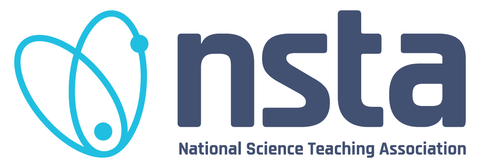NSTA Releases Position Statement on Teacher Compensation
NSTA Releases Position Statement on Teacher Compensation
New Statement Cites Uncompetitive Salaries as a Key Factor in the Shortage of High-Quality K–12 Science Educators
MCLEAN, Va.--(BUSINESS WIRE)--The National Science Teaching Association (NSTA) has issued a new position statement on teacher compensation, warning that if schools want to recruit and retain high-quality science educators and effectively compete with the alternate career opportunities available to people with science backgrounds, then salaries for science educators should be significantly higher than current levels. The statement also emphasizes that differentiating salaries—specifically within high-need districts—would address the pressing challenges faced by many schools serving economically disadvantaged students, such as teacher vacancies, out-of-field teaching, and disparities in instructional quality.
New NSTA position statement on teacher pay calls for higher salaries for science educators—especially in high-need districts—to address teacher shortages and ensure all students receive a high-quality science education.
Share
“If we want to build a strong STEM workforce and drive innovation, we must invest in the educators who inspire and prepare the next generation of scientists, engineers, and problem solvers,” said NSTA President Alicia Conerly, Ed.D. “Right now, too many talented science teachers are leaving the profession—or never entering it—because salaries simply don’t compete with other career paths. If we fail to address this issue, we risk widening educational disparities and weakening our nation’s economic and technological future.”
The NSTA Position Statement on Teacher Pay, unveiled today at the NSTA National Conference on Science Education in Philadelphia, provides a clear-cut argument on the importance of science education to our nation’s science, technology, engineering, and math (STEM) workforce, innovation, and overall economy; discusses the critical impacts of teacher quality and the effects of the science teacher shortage; and lays out the specific challenges facing schools with low-income students.
“All teachers deserve fair compensation, but we believe the issues confronting science teachers go beyond the challenges confronting the typical teacher,” said Jim Wyckoff, Ph.D., professor emeritus of education and public policy in the School of Education and Human Development at the University of Virginia and chair of the NSTA position statement writing team. “Salary differentials for science educators should be flexible enough to attract top-notch educators in all schools, recognizing that the needs and circumstances will inevitably vary based on location.”
This afternoon at the Pennsylvania Convention Center, educators attending the conference can join a special panel session where experts will discuss the new position statement and explore its implications for state, local, and federal policymakers.
“Teacher labor markets are local, so higher salaries for science teachers should be on the radar screen of every state and local policymaker who can ensure that districts have access to the public funds needed to finance salary increases as an investment in the overall science workforce,” said Bob Lay, NSTA Interim Chief Executive Officer. “We urge policymakers and school administrators nationwide to use NSTA’s position statement as a foundation for these important discussions.”
The statement was developed by a team of science educators and education experts and adopted by the NSTA Board of Directors. The full position statement can be found here.
About NSTA
The National Science Teaching Association (NSTA) is a vibrant community of 35,000 science educators and professionals committed to best practices in teaching science and its impact on student learning. NSTA offers high-quality science resources and continuous learning so that science educators grow professionally and excel in their career. For new and experienced teachers alike, the NSTA community offers the opportunity to network with like-minded peers at the national level, connect with mentors and leading researchers, and learn from the best in the field. For more information, visit www.nsta.org, or follow NSTA on X, formerly known as Twitter, Facebook, Instagram, YouTube, or LinkedIn.
Contacts
Kate Falk, NSTA
(703) 312-9211
kfalk@nsta.org
